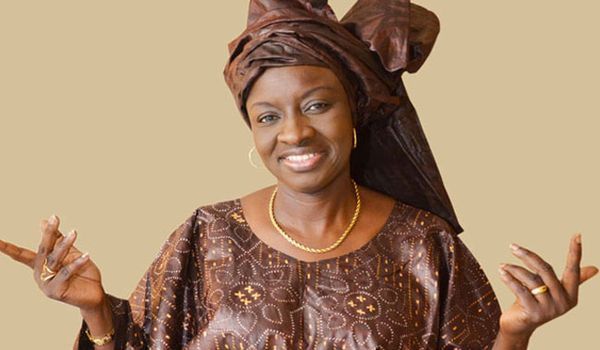As of Sunday (May 1, 2013) Senegal has a new Prime Minister: Feminist, women’s rights and reproductive rights advocate, and long-standing human rights activist, Aminata Touré. Touré served as Justice Minister in the outgoing government and she led the government’s anti-corruption drive, pursuing high-level cases involving senior officials, including the son of former president Abdoulaye Wade.
Photo: Senenews
Senegal’s President, Micky Sall, who won the presidential election in March 2012 against the (ten-year) incumbent Wade, appointed Touré after sacking former Prime Minister Abdoul Mbaye. Explaining Mr Sall’s decision, a presidential spokesman Abou Abel Thiam said the move was in keeping with the president’s decision “to ensure greater efficiency in the government”.
Touré, 51, announced the appointment herself. “The president has asked me to form and lead a new government…I have accepted the post with humility.”
Touré is a member of Sall’s ruling APR party. Her impressive career also includes working as a high-level United Nations official, where she worked on international campaigns to promote gender equality, and to improve access to reproductive rights and health care. Aminta “Mimi” Touré, as she is widely known, is also famed for her football skills as well as her history of socialist militancy. Educated in Senegal and France, she also holds an economics degree.
Dan Moshenberg, director of the Women’s Studies Program at the George Washington University, explains:
“Since adolescence, Touré has been an activist, a militante, and a footballeuse who played for the Dakar Gazelles. At university, Touré worked with the Communist Workers’ League. Since then, her militancy has turned to family planning, both in Senegal, Burkina Faso, Côte d’Ivoire, and around the world, working most recently with the United Nations Population Fund. At the UNFPA, Touré was chief of the gender, human rights and culture branch. There, she pushed and pulled to get all sorts of people, agencies, governments to begin to think and act more seriously about “gender mainstreaming”. Touré understood that, from the state perspective as well as from an analytical point of view, women’s reproductive rights are part of the governmental budget process, and so the two have to be synthesised. She has argued that women’s empowerment and gender equality are key to any kind of health programme. She has said that access to health is a human right, and that that human right is first and foremost a women’s right. Repeatedly, she has shown the world that, if not another world, then a better world is possible … now.”
The new cabinet was announced, much earlier than expected, on Monday evening (May 2). Interestingly, Touré appointed Sidiki Kaba as the new justice minister. Kaba is the former head of the International Federation of Human Rights. And, advises Moshenberg, “his appointment has already come under attack because of his support for decriminalisation of homosexuality. So, he’s got something going in his favour.”
However, some groups have pointed out that – although Touré’s promotion marks impressive progress – the cabinet comprises 28 men and just 4 women.
Touré is only the second woman to occupy the post of Prime Minister, after Mame Madior Boye who led former President Wade’s first government, between March 2001 and November 2002. This is the first major reshuffle of President Sall since elected to office in April 2012.
Widely dubbed Senegal’s “Iron Lady”, Touré’s nomination was generally hailed by the national press – reports the Ghana Spy – with the private newspaper Sud Quotidien saying: “She has a number of values including severity, perseverance and transparency.”
Touré announced in her acceptance speech at the Palace of the Republic in Dakar, “I accept this position with great humility, promising to renew my commitment and mark precisely this new challenge, under the seal of the acceleration of actions taken since last year… I take the baton to continue the race. It’s a race for the development and improvement of living conditions of our people. This mission is accomplished in an international context which is not easy, an international context marked by the crisis.”
She promised to carry out this mission “in dignity… and selflessness.”
For more information see:
The Guardian: Senegal hails new prime minister known for football and feminism


